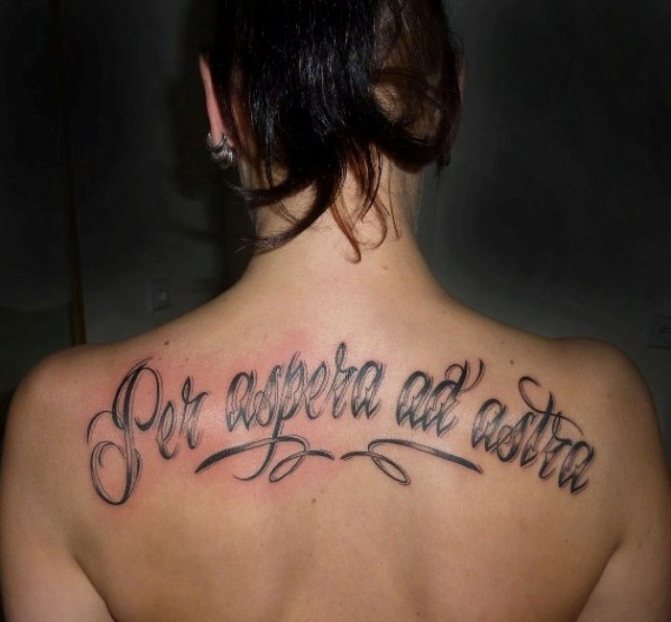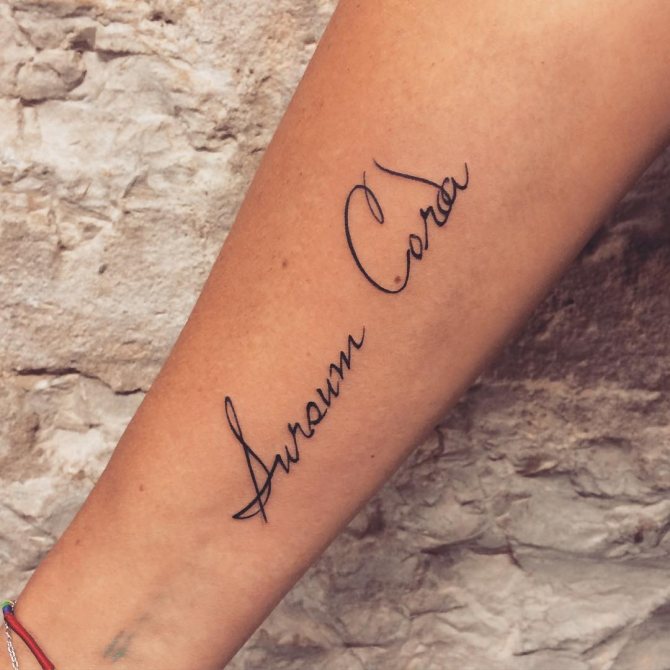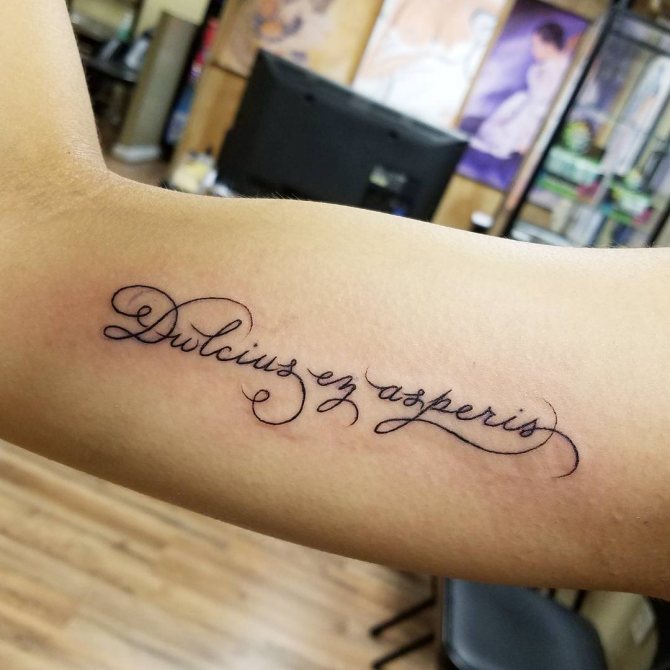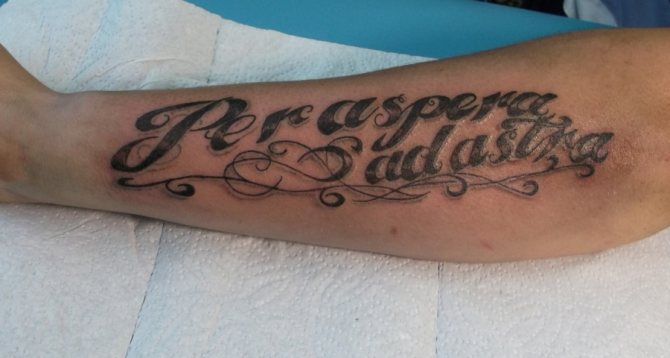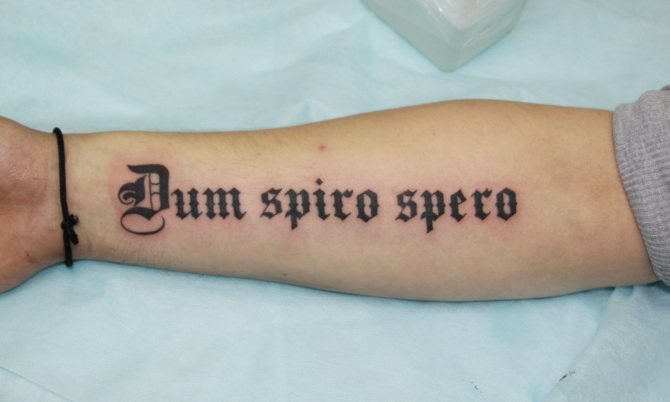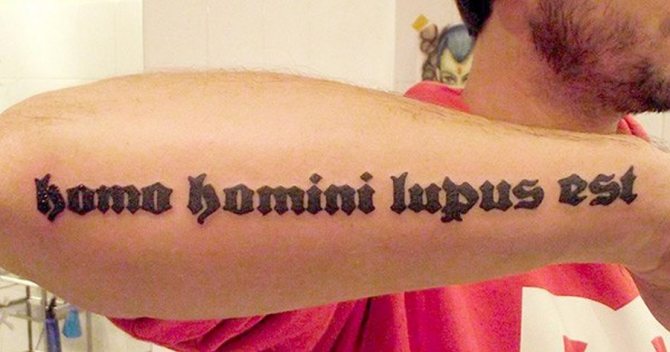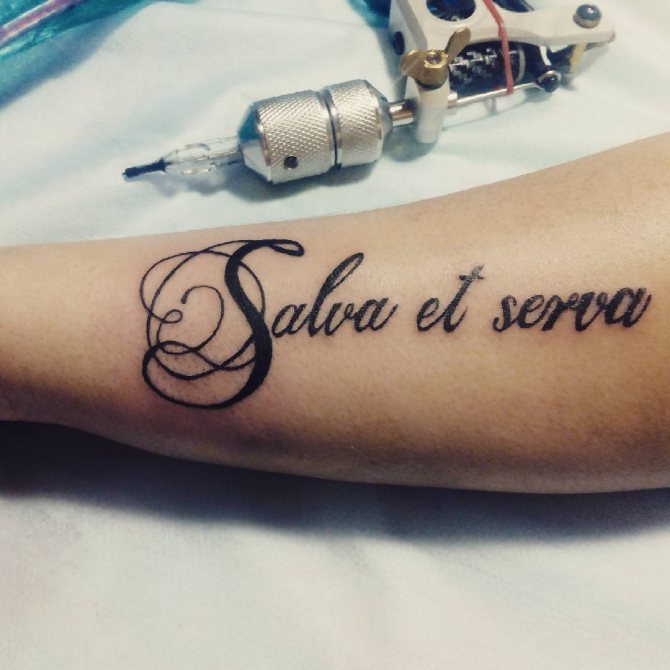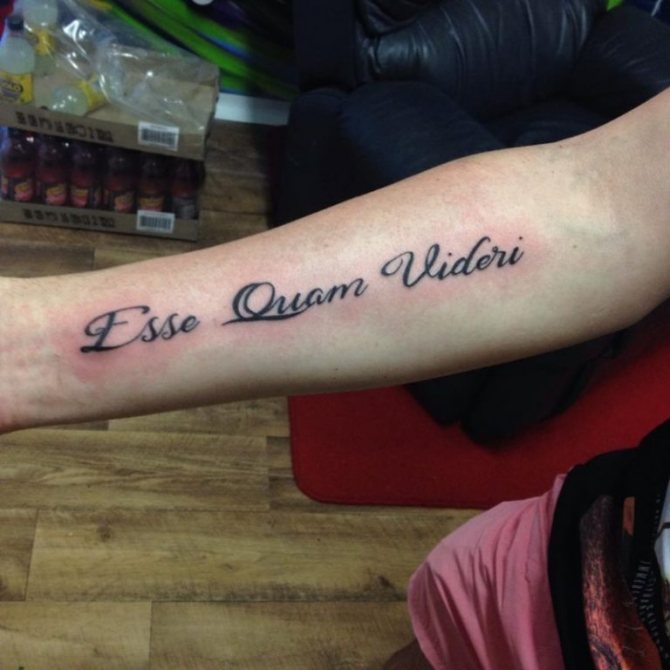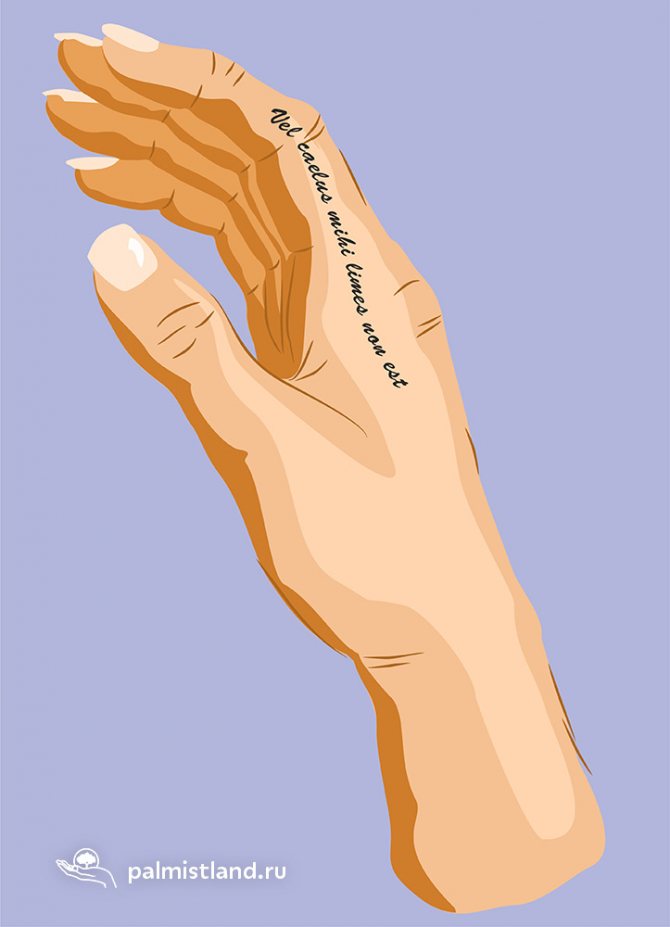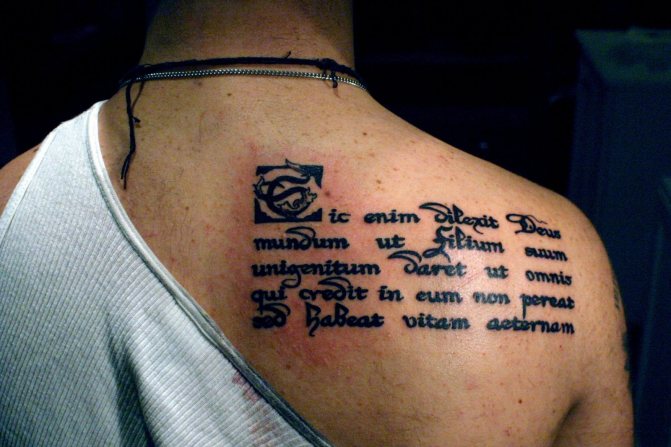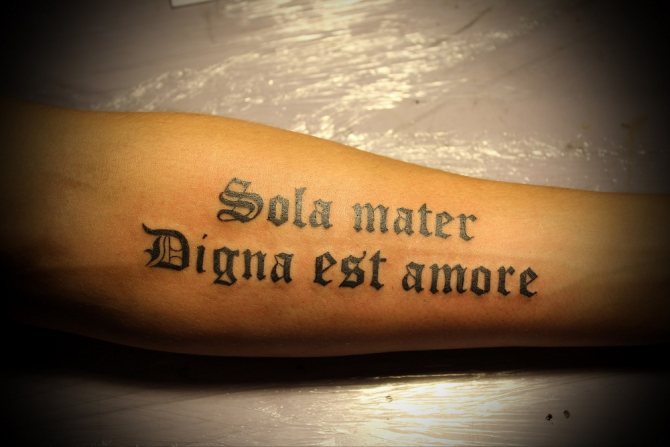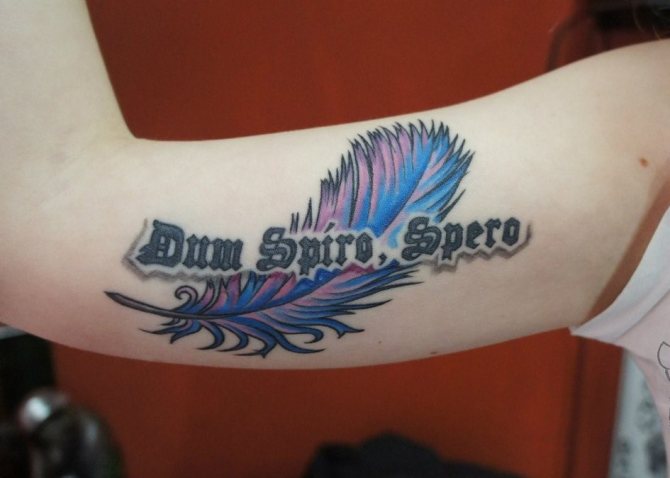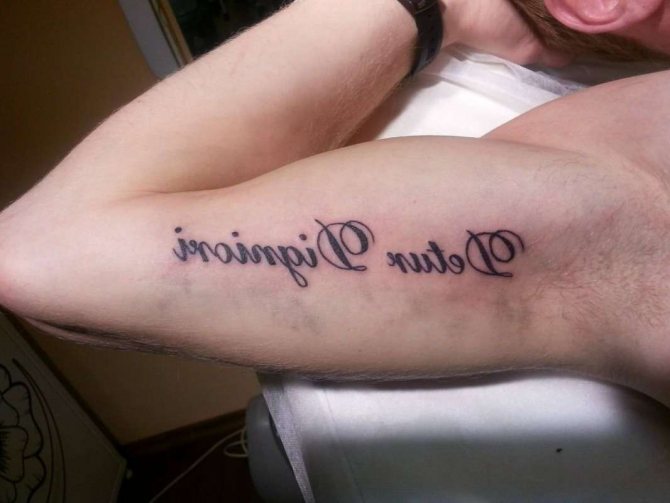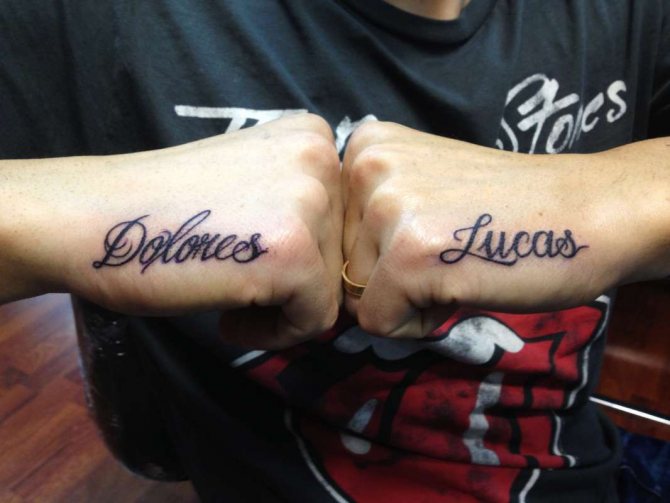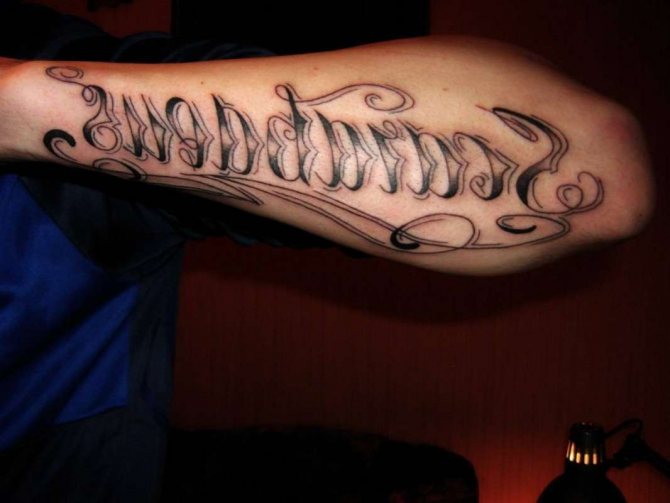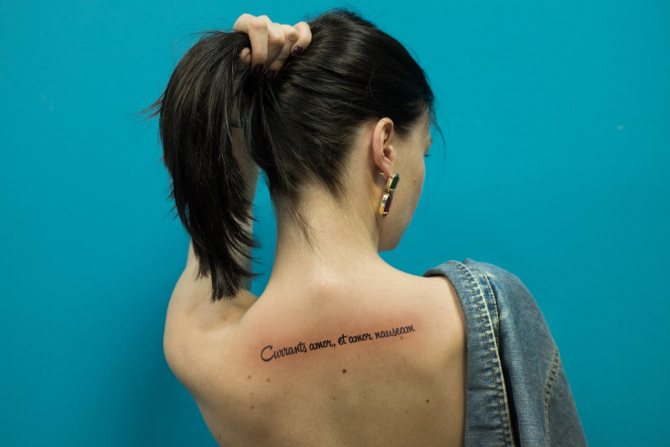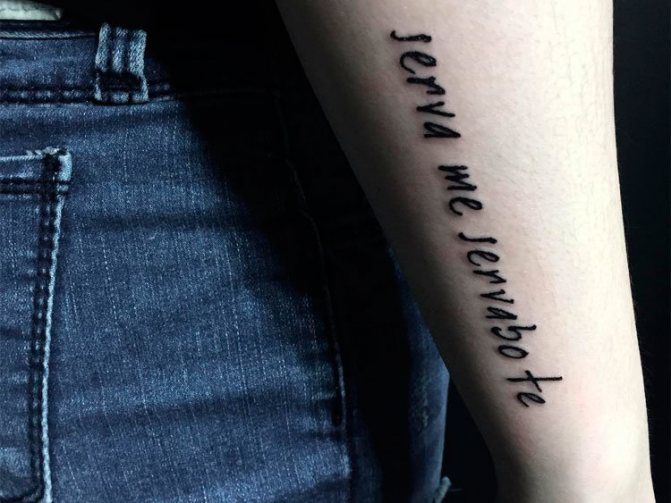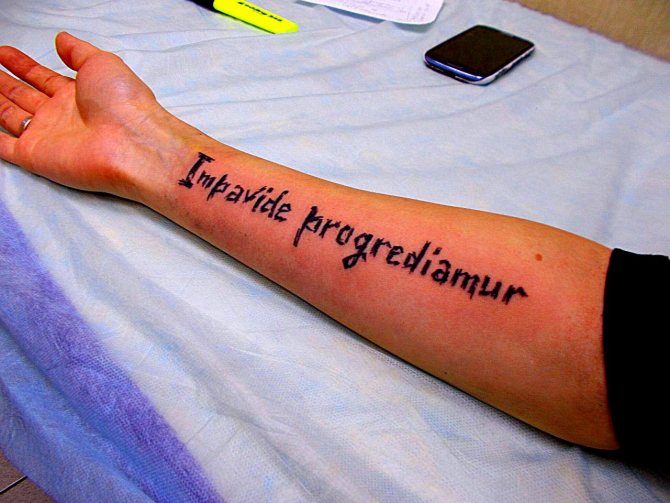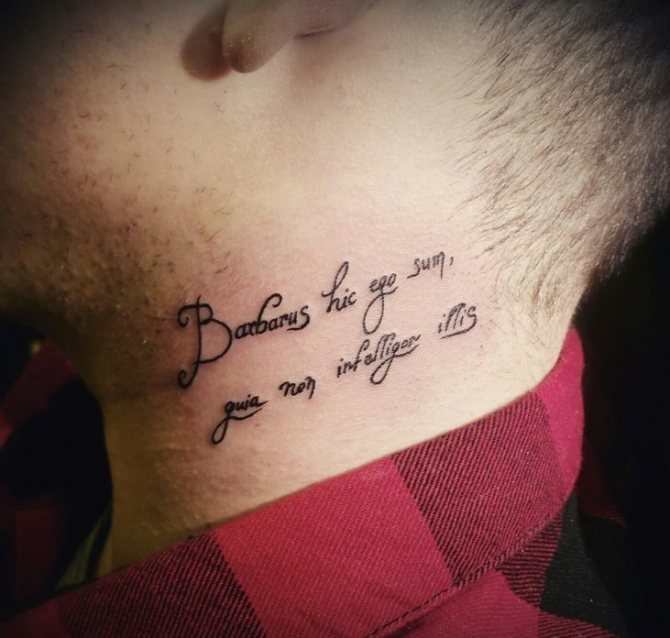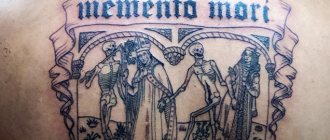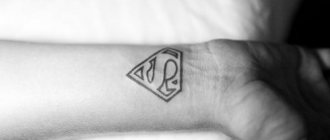Latin is a language that lost its popularity about 20 centuries ago. However, due to the fact that it was widely used by people of ancient civilizations, it gave contemporaries a lot of catch phrases and expressions. Latin is the basis of many modern European languages, so it is still used for a variety of terms, names and designations.
Winged phrases that have reached our days from antiquity are often used as inscriptions for tattoos. These are such phrases as, for example, the well-known ones: "If you want peace - prepare for war", "Through thorns to the stars", "From head to toe" or "The way walketh thee," which will be discussed in more detail below.
Where did the quote come from, who said
"The road is travelled by those who walk" was first pronounced in Latin. This is the opinion of most linguists and historians today. Today there are many versions trying to disprove the axiom that it is from the language of the ancient Romans this phrase has reached our days. The reason for this is the inaccuracy of translations and the loss of many ancient sources.
Some believe that these reasons led to the fact that the authorship of the phrase was attributed to the philosopher Seneca. However, according to most connoisseurs of antiquity, the Hellenes said that "a long way seems endless, and at the end of it to a man it seems quite easy".

Tattoo in Latin "The road is travelled by the goer".
Some believe that these are the reasons why the phrase was attributed to the philosopher Seneca. However, according to the opinion of the majority of connoisseurs of antiquity, the Hellenes said that "a long way seems endless, and upon its completion it seems quite easy to a man.
Orientalists engaged in translations of ancient Chinese texts believe that Confucius was the first to grasp the meaning contained in the proverb. The philosopher said that "the journey of a thousand li begins with a single step.
The struggle for the first mention of the phrase in Latin was imposed on the Romans by India. There is speculation that the Romans borrowed the expression from the Indian Rigveda, which was written in the Vedic language. Literally it can be translated as "He who plows, the plow makes him sated, let him who walks be sated".
In the dictionary of V.I. Dal for 1853 this phrase is absent, indicating that earlier this expression was not used in Russian. The proverb became universally known only in the twentieth century, when it appeared in the notes of the Soviet writer and journalist Mikhail Loskutov. The author notes in his book "The Thirteenth Caravan" that it is a Turkish proverb. Leonid Brezhnev's autobiographical book Celina, published in 1977, confirms this idea and the phrase firmly enters the vocabulary of Soviet citizens.
Pronunciation
In colloquial speech, and not only, there is often a variation of this phraseology. Instead of "through", "through" is used. In general, the variation is quite legitimate, although it is sometimes considered incorrect, since the dictionaries suggest exactly the former. One should not deceive the reader by answering unambiguously how right or wrong it is. After all, it is only a stable expression, and changes in the language are often so transient that even this stability of phraseological expressions turns out to be rather shaky.


But back to our statement "Through thorns to the stars. What does it mean? The property of the combination of words, in terms of pronunciation, is very unstable. As a rule, in conversation people rarely use this saying as we have presented it. Our phrase sounds better exactly with the word "through," as paradoxical as it may seem.
Meaning of phraseology, similar proverbs phrases in different peoples
Every nation has its own proverbs and sayings with a common idea and meaning. The literal translation from Latin sounds like "The road will conquer the going". In Russia the analogue of this expression was the proverb "Patience and work will overcome everything.
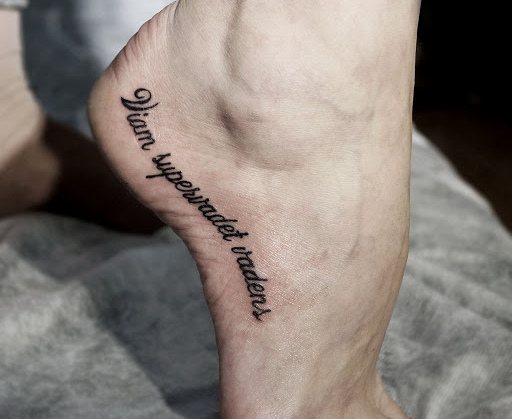

From a philosophical point of view, it is very accurate and capacious expression. The road, the way is a conditional parameter, symbolizing the time and effort spent to achieve a certain goal. The concept of "road" is essentially identical to the concept of "life".
The expression "He who walks the way has two meanings. First, in order to overcome the obstacles that may be encountered along the way, one must act. Second, without doing anything and acting, one simply will not make it through life.
Origin of
The roots of this expression are usually attributed to the famous Latin Per aspera ad astra, which in turn is attributed to Lucius Seneca, who used it in his work The Unstoppable Hercules. The Roman philosopher, who lived at the beginning of the first century A.D., was one of the brightest representatives of Stoicism.


This line of thought obliges followers to maintain a firm position, despite any blows of fate. Apparently, this inclines scholars to cite the words of Seneca, who, as we know, was not only a strict follower of Stoicism, but also went to his death, so as not to betray his convictions, taking his wife at the same time. Indeed, it is not often these days that you meet such conviction in your philosophical position.
Suitable fonts for such a tattoo inscription
To apply the text of the proverb as a tattoo a small number of fonts are used in comparison with other inscriptions. This is due to the fact that the phrase is quite serious and applicable to many life situations.


Adhering to this concept, for the inscription will be suitable fonts:
- Old Scholo;
- Vintage;
- Brush;
- Calligraphy;
- Gothic.
How can I write?
It is possible to apply such tattoos by various methods. It is necessary to start with the placement of the tattoo on the body. It can be small inscriptions on the arm, beautiful, sprawling on the back, or maybe even neat, closed, around the ankle? It's realistic to curve a long sentence into a pattern, like a heart. You can put the main inscription with a translation, or you can leave the meaning hidden. Also such women's tattoos can be done simply as an inscription in a language you are familiar with, you can choose an ancient beautiful language, or you can transfer a hieroglyph. Finally, as a good idea can be the application of a single word in the form of a beautiful, patterned font.
Features of such a tattoo for girls and men
Before deciding to apply a tattoo to the body, a person should weigh all the pros and cons.
He must answer himself four questions:
- Is he willing to walk around with a tattoo exposed or will he hide it under his clothes?
- Is he confident that the tattoo he chooses will not bore him in a few days?
- Does the content of the tattoo match the person's inner beliefs and personality?
- What size will the future tattoo be?


Tattoo in the form of a phrase can be applied to different parts of the body:
| The phrase for the tattoo | Approximate size, cm | Body part |
| "The road is for those who walk" (Latin: "Viam supervadet vadens") | 15-20 | Arms, shoulders |
| 12-16 | Hip | |
| Up to 30 | Back | |
| 10-12 | Neck | |
| Up to 25 | Chest | |
| 8-10 | Foot |


The road will go the walker in Latin is popular for tattoos for both men and women. The representatives of the strong half of mankind put a phrase often accompanied by drawings of roads, the sign of infinity or parchment with a feather lying on it. The figure skater Yevgeny Plushenko has this phrase applied in Latin on a background of a diamond surrounded by seven stars.
Women prefer small inscriptions on the shoulders or feet to emphasize the refinement of their nature.
The ancient nature of its origin and the profound meaning of the phrase "The road goes by the walker" gives it a special meaning, so it is popular as an inscription in Latin for tattoos for girls and guys. An expression with such a strong meaning gives confidence and determination to its possessor, prompting the sacred meaning of the world-famous, wise and true proverb.
Meaning of the expression
In order to explain the meaning of the expression "through thorns to the stars", one should truthfully answer the following question: is it worth living without a dream? After all, life is so fleeting and so demanding of us humans, with duties predominating in it, which certainly separates each of us from our true desires. And the expression "through thorns to the stars" represents that stable life credo, which helps us, sifting out, notice, dear reader, not overstepping everything unnecessary on the way, confidently go to the cherished dream. Whatever it is, whether it is a shiny new car, or conquering the summit of Everest, or maybe even buying our own house on the Mediterranean coast. And most importantly, to make your way "to the stars" successful, which will eventually lead to another important transformation - you will be able to become the person you always wanted to be.
Latin tattoo design style
For tattoos with philosophical and profound Latin inscriptions, you can use almost any of the known styles of tattoos. The choice of execution technique depends on the size of the quote, its location and the meaning behind the utterance. Some of the most popular options include:
- Ornate ornate phrases with monograms.
- Solemn, but at the same time austere gothic style.
- Printed letters that feel like they are carved into the body.
- Utterances serving as part of the composition.
- An inscription with ornamentation.
An inscription with deep philosophical meaning should not only remind about the life position and priorities, but also be pleasing to the eye, having a decorative form. Thanks to this image will not only be filled with a huge semantic load, but also will attract to itself its beauty, original variation, attracting not only its owner, but also people around him. It is necessary to note that to execute a Latin tattoo qualitatively under force not to each master, therefore before put a phrase on a body it is necessary to be convinced that the tattooist will cope with the task, having looked through its portfolio of ready works.
Popular topics of Latin phrases
As stated earlier, Latin is a language that has gone out of circulation and is not used anywhere. Despite this, a huge number of philosophical quotations and sayings on various topics have reached our time, the translation of which attracts both men and the fair sex. As for girls, they give preference to phrases devoted to the topic of family and relationships, love and fidelity. But the representatives of the stronger sex like phrases on the theme of life and death. Creative and spiritual people choose sayings about freedom, defiance of character and destiny.
Tattoos with inscriptions in Latin are very popular these days, but when were they first used? If you believe the historical data, then for the first time began to put on the body utterances in Latin back in the Middle Ages. People who had dedicated their lives to religion would inscribe quotations and oaths from the Bible on their bodies, symbolizing their faithfulness and steadfastness of faith.
Film
The expression "through thorns to the stars", whose meaning has touched millions and more people for hundreds of years, has resonated with people and inspired a film of the same name made in 1980 by Richard Victorov. Fantastic adventure film is dedicated to the theme of saving the planet from ecological disaster, where the tandem of earthlings and aliens was successful. This film showed the way of overcoming incredible difficulties, the name of the picture "Through thorns to the stars" identifies its plot and the meaning of the winged phrase. Obviously, it is a movement forward to the very goal with the imaginable and unimaginable efforts of man.
